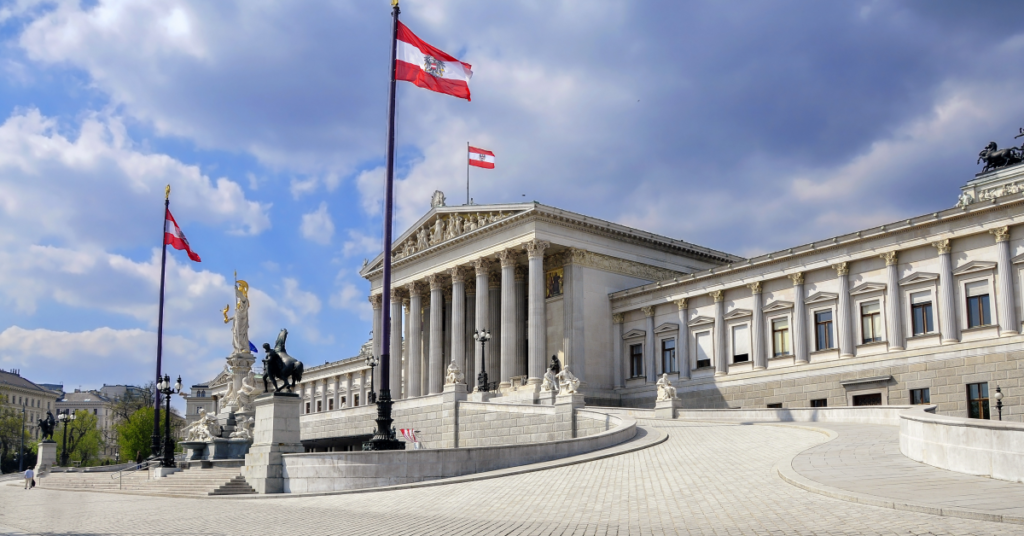The governing coalition in Austria declared tax reforms on 9th September 2021. The Austrian taxation restructuring included the introduction of a new-fangled carbon tax and a decrease in the healthcare incentives for low-income employees, which will help counterbalance the corporate tax levied.
Sebastian Kurz, the Austrian Chancellor, recognized the reforms as eco-social and stated that Austria was following the trail of Germany in levying taxes on carbon dioxide emissions.
Austria implements taxation measures on carbon emissions
Austria declared an intricate array of taxation measures that were inclusive of the imposition of a levy on carbon emissions and a recession of employee and corporate income taxes. This endeavor was part of an agreement between the ruling center-right and green political parties. The Austrian government has dedicated a EUR 18 billion (USD 20.89 billion) package to carry out the economic strategy for the remnants of Chancellor Sebastian Kurz’s tenure. The renowned taxation system will also enforce Austrian homes to own up to a fraction of the environmental and economic burden from emissions (from heating homes and driving automobiles) that facilitate climate change.
Gernot Bluemel, Finance Minister, told reporters in Vienna on Sunday that the government has unanimously decided to levy taxes on the carbon dioxide emissions produced. The taxation policy will help the working class and contribute to Austria’s goal of sustainability. The endeavor is also dubbed to be a gateway to reduce the government’s debt, according to Bluemel. The strategy is inspired by the German strategy of levying phased-in taxes on emissions and comes above a prevalent EU-widespread strategy for big-time industrial firms. The implementation of these taxes arrives after numerous negotiations between the Green Party and the Chancellor’s People’s Party.
The taxation will facilitate a coating of solidity to a ruling coalition backed by investigations into the Chancellor’s previous coalition with the Freedom Party, and the Green Party’s efforts to phase out some infrastructure ventures. The carbon tax levied was at the lesser end of the expectations of people.
The World Wildlife Fund stated that the levy was a frail compromise and that the price should have been at least EUR 50 per ton. Greenpeace said in a statement that the taxation implementation was ‘too late and ineffective.’ The International Monetary Fund stated that Austria should have increased the tax to EUR 100 per ton by 2030.
From mid-2022, Austrians will be levied EUR 30 (USD 34.82) per ton, which will eventually surge to EUR 55 by 2025.
By 2024, corporate taxes will decrease to 23%, a decrease from the current rate of 25%. The taxes levied on income will also see a recession, for two income brackets.
City inhabitants can expect a EUR 100 ‘climate bonus’ every year. Rural dwellers can expect a EUR 200 interruption from taxes as public modes of transportation are utilized rarely and people are more reliant on their vehicles.
Chancellor Kurz acutely stressed that the new-fangled taxation measures would ‘lower the burden’ of taxes on the working-class.
Parallelly, health bonuses for Austria’s underprivileged population are being cut down along with corporate taxes. However, families will be granted EUR 2,000 per child from mid-2022, more than the current EUR 1,500 mark.
The reception of Austria’s new taxation measures
The Green Party supporters received the new-fangled tax policy as a minimal contribution from the government. Despite the intentions that are focused on the environment, people believe that the shifting of tax burdens from corporates to private persons is unfair.
The levied carbon taxes were deemed to be lower than expected.
The Austrian World Wildlife Federation recognized the reforms to be ‘weak’ and suggested that the carbon tax strategy must be ‘much more ambitious’ to achieve reduced carbon emissions.
